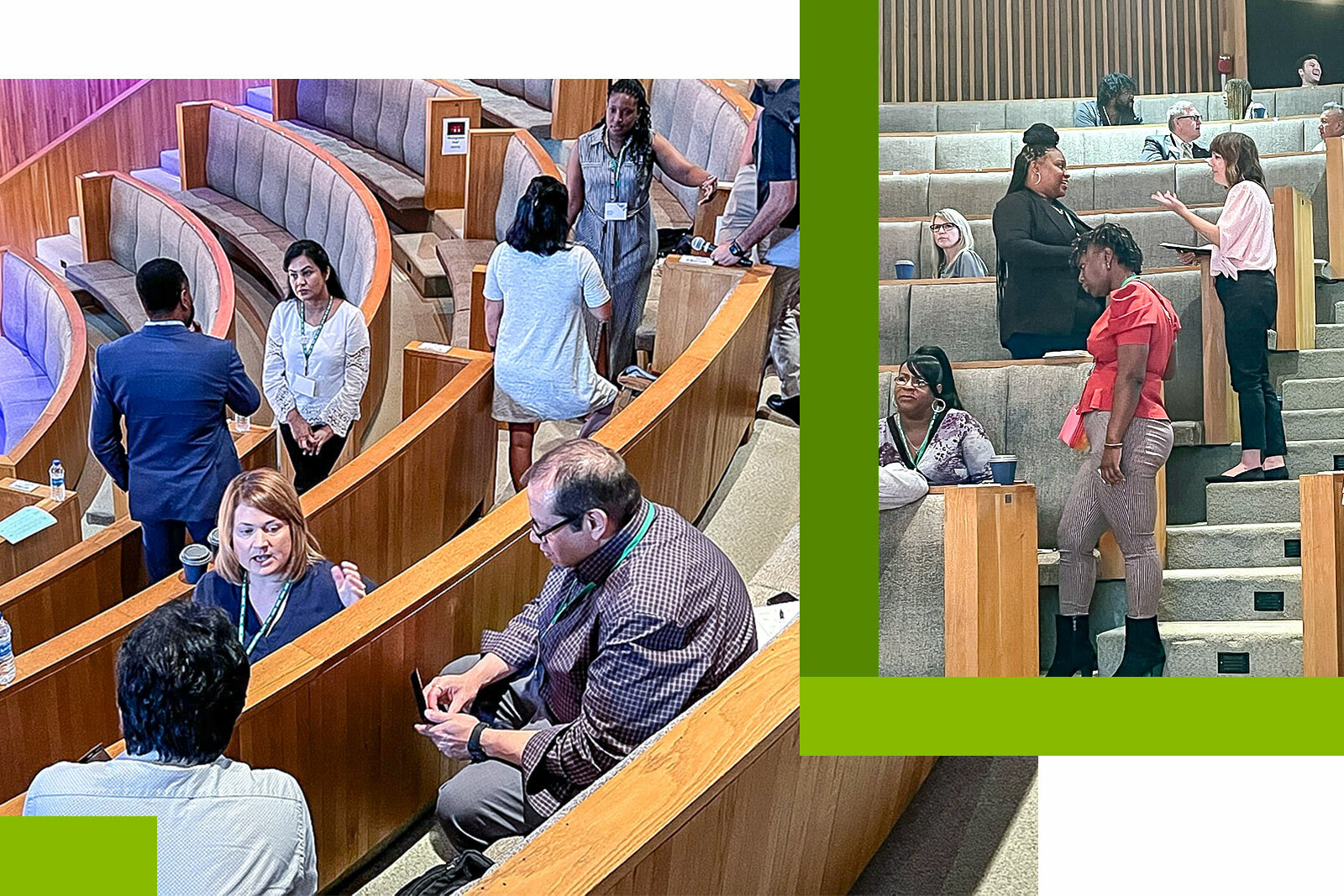“I quit!”
So said roughly 47 million American employees in 2021 alone, according to the U.S. Bureau of Labor Statistics. Sure, most were more tactful than that. Nonetheless, record-breaking resignation rates challenged companies of all sizes, especially smaller employers.
“Employee turnover and the inability to fully ‘staff up’ have been devastating to small-business owners everywhere,” said Steve Grossman, CEO of the Initiative for a Competitive Inner City (ICIC), a business-focused nonprofit that collaborates with Regions Bank as part of their shared commitment to creating more inclusive prosperity. “Worker shortages impact customer service and undermine the capacity for businesses to grow revenue as entrepreneurs struggle to emerge stronger from the pandemic. Talent management may be the biggest challenge small businesses face in the current environment.”
ICIC, Regions, and Indianapolis community leaders joined forces to address employee turnover and more with approximately 50 Central Indiana entrepreneurs during the Inner City Capital Connections (ICCC) workshop held on Butler University’s campus.

Likened to a “mini-MBA on steroids,” ICCC is a tuition-free, intensive program connecting business owners in underserved areas with insights on strategy, accessing capital, marketing, and more. Courses are led by esteemed business educators. Follow-up webinars, coaching, and mentorship are available.
“Entrepreneurs are known for being resourceful and nimble,” said Erik Miner, market executive for Regions Bank in Indianapolis. “Those qualities have been especially needed and tested during the past two years. Bringing ICCC to Indy for the first time – and at this particular time – was a way Regions Bank could empower small-business owners with practical resources.”
Steve Bookbinder, a consultant and faculty member with ICCC, presented “Talent Management and Leadership in Uncertain Times” as part of the Indy ICCC workshop. Bookbinder said small-business owners who avoid a revolving door of employee turnover exhibit common traits.
“Those who have survived have been creative and resilient,” Bookbinder said. “They have come up with strategies to attract people, train them, get them up to speed, and then retain them by being better managers.”
Every business has to figure out what I call ‘The Deal’ of how they want to be innovative with pay, benefits, and working conditions to create their total rewards package.
Steve Bookbinder, consultant and faculty member with ICCC
Bookbinder believes those same employers are successful because they are highly attuned to what their team members are seeking in the workplace, qualities that can vary from employee to employee based on where they are in their career.

“What you want may differ,” explained Bookbinder. “Pay and benefits such as a 401(k) and health plan can become more complicated. Smaller businesses can’t really offer all the benefits that a larger employer can; therefore, they have to be particularly creative about what they can offer. Every business has to figure out what I call ‘The Deal’ of how they want to be innovative with pay, benefits, and working conditions to create their total rewards package.”
Bookbinder also notes that COVID-19 has created a seismic shift with employee expectations.
“We’ve experienced an incredible psychological shock during the past two years,” he said. “Passing through the pandemic’s traumatic time caused us to re-evaluate what’s important in all aspects of our life and work.
So, what factors do studies indicate are the most important to reduce employee turnover with today’s workforce?
Employees want jobs that are flexible.
For many, it’s non-negotiable. When, where, and how they work impacts the work-life balance more people are seeking. “Employees are saying, ‘I want a more supportive and personal work environment,” said Bookbinder. “This is about creating conditions that are responsive to employees’ needs like childcare responsibilities and scheduling. In a small business, you can design jobs that motivate employees and recognize their individual situations, while still meeting the company’s needs.”
Team members want employers that match their values.
“Employees want to be able to say, ‘This is someplace where I can feel good about what I do; it’s a work environment I can be proud of,’” said Bookbinder. “Employers have to be very concerned about that.”
Associates want an inclusive environment.
“The world has become much more team-oriented,” said Bookbinder. “For small businesses, that team can be 10 to 12 people. You have to focus on the team environment because the team is a key part of the work environment.”
Employees want drama-free workplaces. They don’t want a toxic boss.
“Certain industries used to be known for bosses screaming at and threatening to fire people,” said Bookbinder. “People don’t want to work that way anymore. There’s an awareness today’s employees have of wanting to be part of a positive environment. They will stay if they have a great boss; they’ll leave if they have a lousy one. Regardless of whether the job is flexible, they’ll look for something else if they have a bad boss.”
More than anything, employees want jobs where they can grow and places where they can advance.
“Team members want to be able to add more arrows to their quiver,” said Bookbinder. “They’re asking themselves, ‘Where can I go from here?’ Small businesses can offer their employees a chance to grow with the company.”
But before they ever grow with the company, they have to remain there. Bookbinder believes employers need to do more than put their best foot forward during the interview process; they need to be honest about what they can offer.
“What attracts people is different than what gets them to stay,” he explained. “If the working conditions aren’t right, you won’t retain them. The key question bosses need to need to ask themselves is, ‘Am I the leader people want to work for?’”